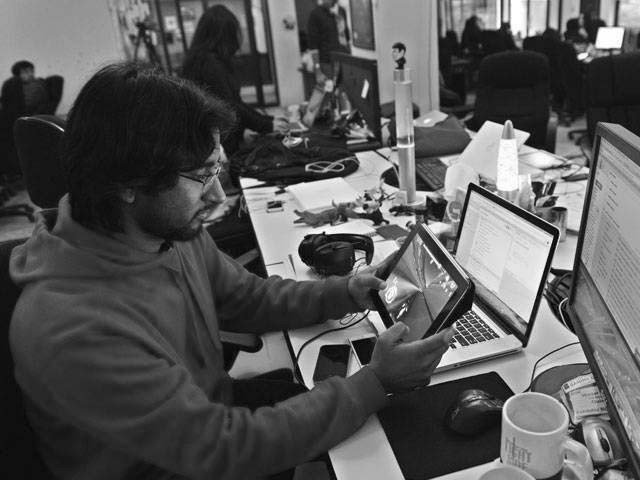KARACHI: Despite a tough 2022 for global and domestic economy, funding for Pakistan startups remained passable with a slight decline of 7 percent in 2022 as compared to the last year, a report stated.
Startup funding declined to $347 million from around $375 million in 2021. Investments in Pakistani startups upheld against all odds such as political challenges, currency volatility, devastating floods, high inflation and interest rates amid Russia-Ukraine war causing energy and food price shocks, followed by global recession fears due to massive tightening, the report by Alpha Beta Core said.
Read also: Pakistan oil sales drop 14pc in Dec 2022 due to economic slowdown
Startup funding globally was down by 50 percent in 2022, it added. “Global Venture Capital (VC) funding has already gone down by 50 percent to below $300 billion – steepest decline recorded in history of global VC funding,” the report said, adding that Indian startups had seen a decline of 30 percent in funding to $24 billion in 2022 from record $36 billion raised last year.
Compared to 2021, the year 2022 had fewer deals but the average deal size was recorded at $8.7 million, which was 57 percent higher than the average deal value of $5 million last year. Top deals closed in 2022 included Bazaar at $70 million, Dastgyr at $37 million, Retailo at $36 million, Jugnu Tech at $22.5 million, and DBank at $17.6 million, according to the report.
Major sectors in the outgoing year remained e-commerce, fintech, edtech, healtech, and mobility. In fourth quarter of 2022, total deal value of Pakistan startups cloaked in at $14 million with five deals in total.
The year 2021 had helped Pakistani startups to join the big league as they collected up to $375 million, which was not only more than 450 percent higher than a year before but was also more than ever recorded in a year.
“While the economic downturn presented challenges in 2022, 2023 still has many opportunities for innovative entrepreneurs to address issues in Pakistan’s legacy sectors, such as finance, education, and health,” it said.
The report envisaged that the momentum to stay muted in the first quarter of 2023, while to pick up from the second quarter once the global economy starts to recover and some clarity emerges on the political and economic fronts at home.

